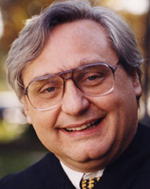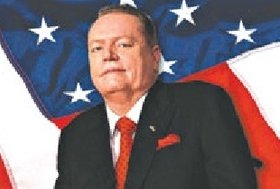
Does the First Amendment protect lying? Depending upon the context, the answer is either "no," "yes," or "maybe." It is an interesting question which the Supreme Court is almost certain to revisit.
In New York Times v Sullivan (1964), the Court extended First Amendment protection to false statements of fact in a defamation suit. The Court held such statements, when made about about a public official, could not be the basis for awarding damages, at least without evidence that the false statements either were made recklessly or with knowledge of their falsity. The Court suggested that, while false statements contribute nothing of value to political discourse, they need protection to allow "breathing room" for statements that are true. Without this protection, the Court noted, true statements might not be made either out of a fear that the speaker could be later proven wrong, or that a biased jury might find the statements to be untrue even when they are not. While the Court's majority refused to extend protection to deliberate lies, three justices would have gone further and held that public officials and public affairs can be discussed "with impunity." Justices Black and Douglas argued that the power of government to use any law to impose damages is "precisely nil." Justice Goldberg agreed, suggesting that the defense of a public official against "deliberate misstatements" was "counterargument and education."
Deliberate misstatements of fact were at issue in Hustler Magazine v Falwell (1988). Hustler magazine had stated that a prominent fundamentalist minister, Jerry Falwell, had drunken sex with his mother in an outhouse. Although the Court noted that "false statements of fact are particularly valueless," it drew a distinction between false statements not meant or likely to be believed by readers and other false statements of fact. The Court held that First Amendment prohibited awarding damages for false statements about public figures that cannot reasonably be believed. Satire and parody often involve false statements, and so long as persons would not take the statements to be true, they cannot be the basis for a tort action.
Rickert v Washington, a 2007 decision of the Washington Supreme Court, considered whether a political candidate could be punished for telling deliberate lies about her opponent in a political campaign. Voting 5 to 4, the court held that Marilou Rickert, a Green Party candidate for the State Senate, could not be fined for falsely claiming in a campaign broshure that one of her opponents "voted to close a facility for the developmentally challenged." The Court's majority said the state law "naively assumes that the government is capable of correctly and consistently negotiating the thin line between fact and opinion in political speech."
United States v Alvarez (2012) raised the question of whether the First Amendment allowed prosecution of a newly elected member of a California water board who introduced himself to a group of citizen as a 25-year Marine veteran who had been "awarded the Congressional Medal of Honor." Alvarez was prosecuted under the Stolen Valor Act which authorizes imprisonment for anyone who "falsely represents himself or herself. to have been awarded any decoration or medal authorized by Congress for the Armed Forces of the United States." The Supreme Court, on a 6 to 3 vote, affirmed the Ninth Circuit decision overturning Alvarez's conviction. Justice Kennedy (joined by Chief Justice Roberts and Justices Ginsburg and Sotomayor) applied strict scrutiny to the law and noted that content-based restrictions on speech were almost always unconstitutional. Justices Breyer and Kagan, concurring, said intermediate scrutiny should apply to false statements, but that the Stolen Valor Act must fall, because it applied too broadly, even to false claims made to family and friends in private, for example. The two concurring justices' opinion left open the possibility that Congress might redraft a narrower statute that could be upheld. Justices Alito, Scalia, and Thomas dissented.

Judge Kozinski on the Reasons We Lie ( US v Alvarez )
Judge Alex Kozinksi
Saints may always tell the truth, but for mortals living means lying. We lie to protect our privacy (“No, I don’t live around here”); to avoid hurt feelings (“Friday is my study night”); to make others feel better (“Gee you’ve gotten skinny”); to avoid recriminations (“I only lost $10 at poker”); to prevent grief (“The doc says you’re getting better”); to maintain domestic tranquility (“She’s just a friend”); to avoid social stigma (“I just haven’t met the right woman”); for career advancement (“I’m sooo lucky to have a smart boss like you”); to avoid being lonely (“I love opera”); to eliminate a rival (“He has a boyfriend”); to achieve an objective (“But I love you so much”); to defeat an objective (“I’m allergic to latex”); to make an exit (“It’s not you, it’s me”); to delay the inevitable (“The check is in the mail”); to communicate displeasure (“There’s nothing wrong”); to get someone off your back (“I’ll call you about lunch”); to escape a nudnik (“My mother’s on the other line”); to namedrop (“We go way back”); to set up a surprise party (“I need help moving the piano”); to buy time (“I’m on my way”); to keep up appearances (“We’re not talking divorce”); to avoid taking out the trash (“My back hurts”); to duck an obligation (“I’ve got a headache”); to maintain a public image (“I go to church every Sunday”); to make a point (“Ich bin ein Berliner”); to save face (“I had too much to drink”); to humor (“Correct as usual, King Friday”); to avoid embarrassment (“That wasn’t me”); to curry favor (“I’ve read all your books”); to get a clerkship (“You’re the greatest living jurist”); to save a dollar (“I gave at the office”); or to maintain innocence (“There are eight tiny reindeer on the rooftop”).
. It doesn’t matter whether we think that such lies are despicable or cause more harm than good. An important aspect of personal autonomy is the right to shape one’s public and private persona by choosing when to tell the truth about oneself, when to conceal and when to deceive. Of course, lies are often disbelieved or discovered, and that too is part of the pull and tug of social intercourse. But it’s critical to leave such interactions in private hands, so that we can make choices about who we are.

Candidate Marilou Rickert was fined for falsely claiming her opponent
voted to shut down a facility for the developmentally challenged

Larry Flynt published a story falsely claiming that Rev. Jerry Falwell had
drunken incest with his mother in an outhouse.
Questions
1. It is beyond question that some lies (e.g., perjury, consumer fraud, filing a false police report, forgery) are not protected by the First Amendment. What are the general characteristics of a false statement that should determine whether it is protected by the First Amendment or not?
2. New York Times affords protection for even negligent false statements, but not for deliberate false statement, that damage another person's reputation. Do you think the New York Times standard affords sufficient breathing room for discourse about public officials or should the Court have adopted the recommendation of Justices Black, Douglas, and Goldberg and protected even deliberate lies. Does your answer depend upon how much faith you have in juries to do their job well?
3. Key to the Court's decision in Hustler v Falwell was that no reasonable reader would have believed the statements in the magazine about Rev. Falwell to be true and that it is difficult to draw a line that allows such statements--even when made with the intent to injure--to be separated from satirical commentary. Might remarks ever do harm to a reputation even if they are not believed? Is there any solid principle you can imagine that could separate the outrageous statements in Hustler from the sort made by political cartoonists and late-night comedians?
4. 18 U.S.C. 1001 makes it a crime to "knowingly. make any materially false, ficticious or fraudulent statement" to a federal agent. This provision, which was the downfall of a number of well-known defendants from Martha Stewart to Governor Blagojavich, has been upheld by the Supreme Court. Even a conviction based on the answer of "no" to a question from a federal agent, when the actual answer is "yes," has been upheld by the Court ( Brogan v U.S. )(1998). Do you think prosecutions under this very sweeping provision might ever violate the First Amendment? If so, in what situations might that be the case?
5. Rickert v Washington says that the state cannot impose fines on a candidate for telling deliberate lies about his or her opponent, no matter how outrageous ("My opponent threw a cocker spaniel from a tressel;" "Last Saturday night my opponent drugged and slept with a fifteen-year-old girl"). Is counter-speech or a subsequent defamation suit always an adequate remedy?
6. What is the harm the government sought to prevent through enactment of The Stolen Valor Act. What actual harm do you think was caused by Alvarez's bizarre claim to have been awarded the Congressional Medal of Honor?
7. Do you think the court in Alvarez was correct in applying strict scrutiny to The Stolen Valor Act?
8. Lies to get money (consumer fraud, etc.) are generally punishable. Are lies to get votes substantially less harmful and, therefore, less deserving of punishment? Are there other arguments for being more protective of politically-motivated lies?